Like many people, wives Diane Romano and Patricia Goff missed their annual mammograms due to COVID-19. When Romano received hers in December 2021, she was diagnosed with two different types of stage 1 breast cancer. Months later, Goff had her mammogram and learned she also had stage 1 breast cancer.
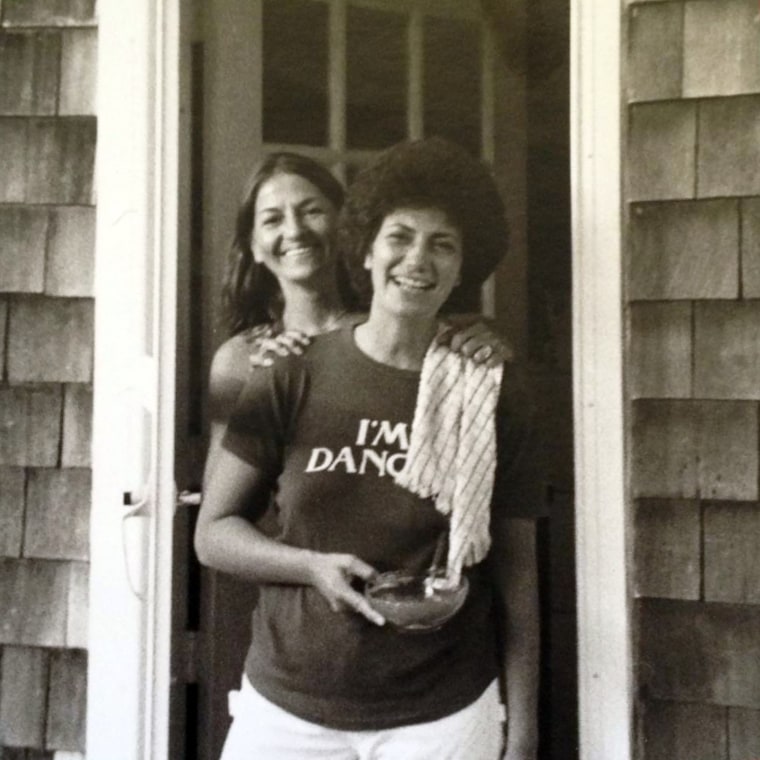
“We have been together for 50 years. We share everything,” Romano, 72, of Cherry Grove, New York, told TODAY. “I could have done without sharing breast cancer.”
While the spouses were stunned to have breast cancer at the same time, they say their story stresses the importance of undergoing regular screening for breast cancer.
“I’m a firm believer in annual physicals,” Romano said. “I would end every email with, ‘If you haven’t had your annual exams, please get them now. Don’t wait.’ And I will tell you: A lot of women because of that … would send me back (a message), ‘OK I went to get my mammogram.’”
Annual mammograms leads to diagnoses
After missing her mammogram because of the COVID-19 pandemic, Romano went in December 2021, and on Dec. 27, she learned she had breast cancer.
“I had two lumps on the same breast on opposite sides,” Romano said. “The mastectomy was recommended because it would be impossible to do a lumpectomy, and it turned out that I had two totally different cancers, and luckily they caught it at stage 1. They said to me that these cancers have not been in your body a long time, and they are both aggressive.”
She had a HER2-positive breast cancer, and a triple negative breast cancer. These attributes make the cancers more likely to grow faster, spread and return, according to the American Cancer Society. Normally patients with more than one tumor have the same type of cancer, experts say.
“It is rare. Most breast cancers that occur in the same breast are the same subtype. But in her case, it just so happened both on the left breast, they are different,” Dr. Nancy Chan, director of breast cancer clinical research at NYU Langone Perlmutter Cancer Center and one of Romano’s doctors, told TODAY. “It’s definitely not the usual presentation.”
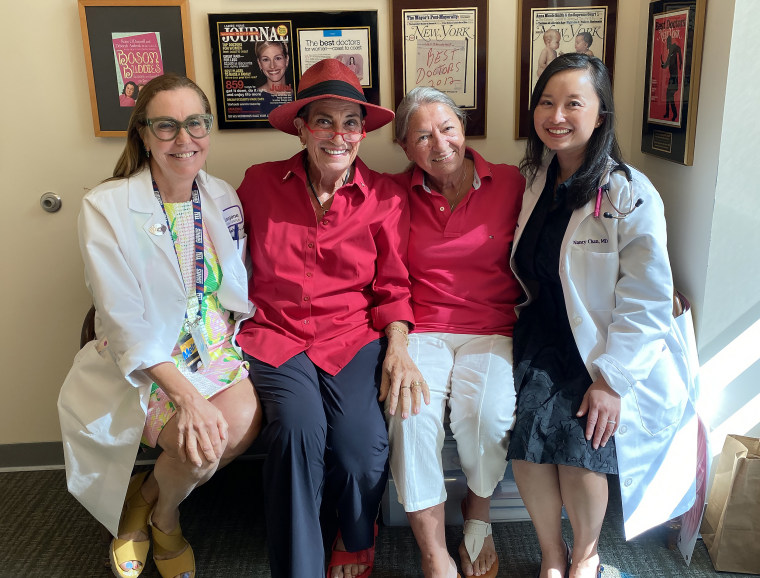
Doctors recommended a mastectomy as part of Romano’s treatment, which occurred on Feb. 17, 2022. While the original surgery went well, Romano developed a hematoma, a deep bruise with pooled blood, and doctors needed to repair it a few hours after her mastectomy. Later she developed an infection, but as soon as that cleared, she started “fairly aggressive chemo” with an antibody treatment.
“I got terrible nausea, and so they were giving me the steroids in the infusion,” Romano explained. “We were at the point where we were counting down the cycles. I had to do 12, three week cycles (of treatment).”
When Romano was more than half way through her chemotherapy, Goff received her mammogram results of breast cancer. It was later typed as stage 1 estrogen receptive (ER)-positive tumor.
“Patricia had breast cancer 28 years ago. She has family history. Her mother died of breast cancer,” Romano said. “I was shocked when they told me I had breast cancer — I never expected that. Everybody was shocked with Patricia’s breast cancer came back after 28 years of clean mammograms.”
Goff chose to undergo a mastectomy, as well. When she had breast cancer originally, she had a lumpectomy and radiation. She could have chosen that treatment again with 15 days of twice daily radiation, but she remembered how terrible that treatment made her feel.
“I was surprised, of course, that this had happened,” Goff, 81, told TODAY. “I saw what other people went through with radiation. Many of them were burned.”
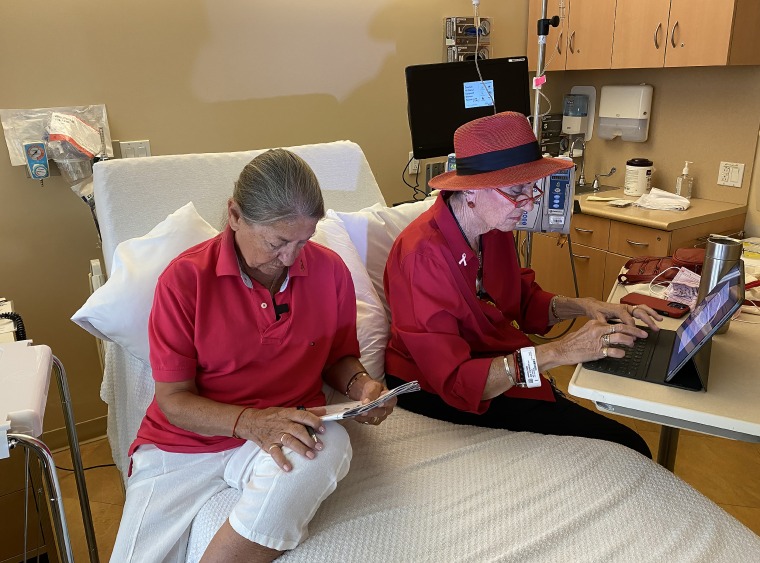
With the mastectomy, Goff did not even need chemotherapy and only takes a maintenance pill. She immediately told her family about her diagnosis because she wanted to make sure everyone was screened based on their family history of breast cancer.
“I called all my siblings, all my cousins, male and female because I was cognizant of the fact that men can get breast cancer, too,” Goff said. “Thankfully, no one did.”
Early detection leads to better outcomes
Undergoing an annual mammogram starting at age 40 is one of the best ways for breast cancer to be found early, the experts say.
“The earlier you get diagnosed with breast cancer, the more likely it is that you will have a cure. That goes for all subtypes of breast cancer regardless of whether it’s hormone positive, triple negative, HER2 positive,” Chan explained. “That is why the mammography screening program that most women are on with their primary care doctor is very important.”
Chan, who treated both women, said the couple is thriving thanks to early diagnosis and treatment.
“We expect them both to do very well,” Chan said. “Diane had to go through the chemotherapy part, which is tough. But she did it.”
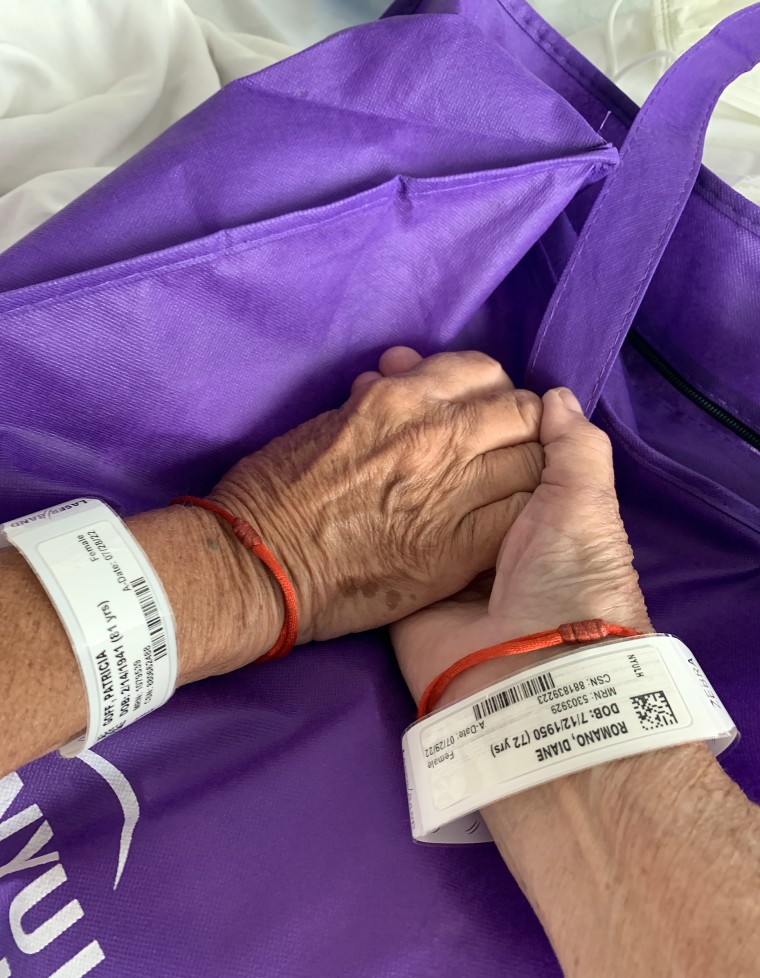
Even though this is the second time that Goff had breast cancer, it’s unlikely this cancer is a recurrence of the original cancer.
“The highest risk for recurrent for breast cancer is still in the first five years,” Chan said. “This is more likely a second new breast cancer as opposed to recurrent disease.”
Dr. Deborah Axelrod performed surgery on both women and agrees that Goff’s cancer is likely “totally unrelated” to what she had 28 years ago. For Goff’s treatment, it made sense for her to have a mastectomy after having a lumpectomy.
“If you have the battleground effects of radiation and surgery, it’s a big contributor to wanting to do a mastectomy,” Axelrod, a breast cancer surgeon at NYU Langone Perlmutter Cancer Center, told TODAY. “It’s probably not for survival but for the comfort. Believe it or not, the chest feels more comfortable.”
Both doctors noted that Romano and Goff had positive attitudes that helped them as they navigated surgery and treatment.
“Diane, I feel like she had a coping strategy right away that she probably has used in other situations,” Axelrod said. “They like to travel. They’re very active people, and they’re very committed to one another.”
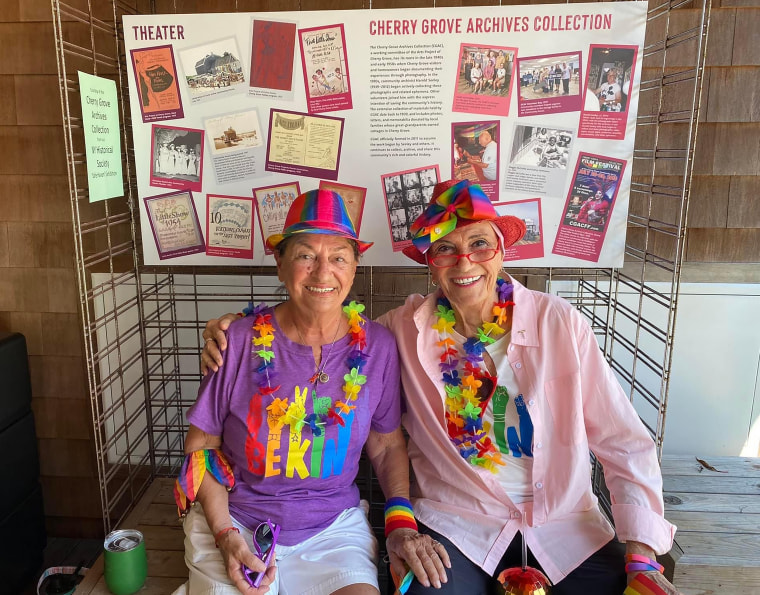
A celebration of life and love
Goff said the two had to get better because “they had a party to go to.” In September 2022, they celebrated their 50th anniversary together. They were legally married in 2012 in New York).
“We were feeling great. We are cancer-free. I’m done with chemo,” Romano said. “Sept. 9 was the big anniversary party, which was fabulous.”
During treatment, Romano shared weekly email updates with loved ones and she urged everyone to undergo their screenings, such as colonoscopies, mammograms and prostate cancer tests. The couple hopes their experience encourages others to see a doctor regularly and undergo testing as needed.
“Find out what your health is, do your annuals, and when you have something that’s not quite right, deal with it. Don’t be afraid of it,” Romano said. “Don’t be afraid to ask every question in your mind.”
Goff said she’s noticed a change in how many people regard breast cancer, and she hopes that means more people willing to undergo screenings.
“Cancer used to be the word that everyone whispered,” she said. “Now it’s opened up and people are a little less afraid.”